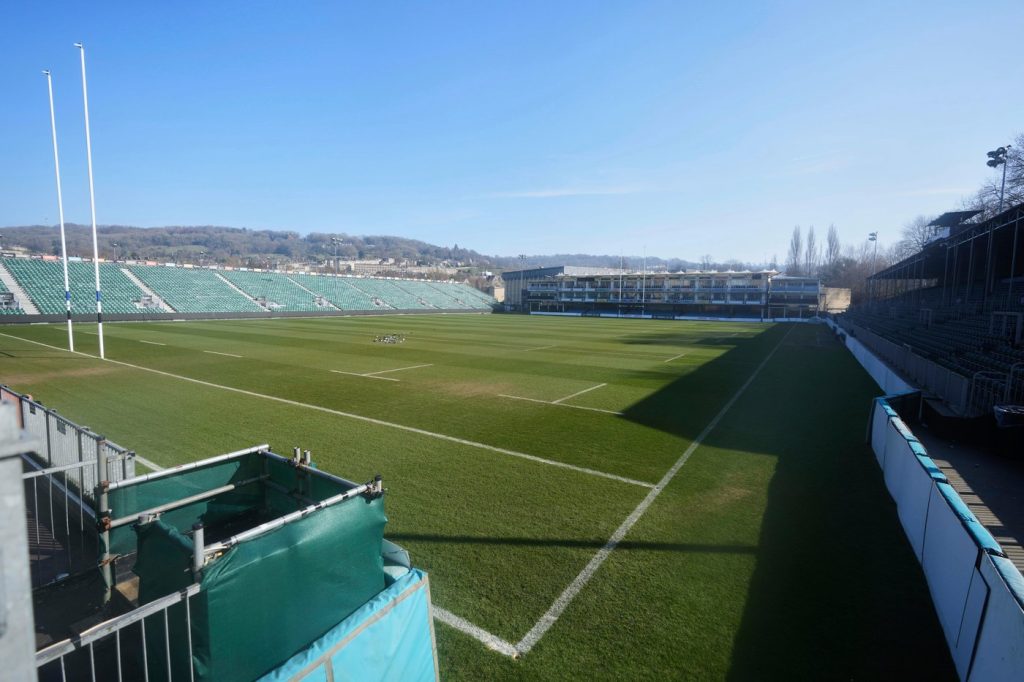A legal dispute has emerged in Bath, England, centered around the expansion of Bath Rugby's stadium at the Recreation Ground, known as The Rec. Despite winning a legal battle in the Supreme Court, the rugby club faces further obstacles due to Bath's designation as a UNESCO World Heritage Site. This heritage status is due to its Roman roots, Georgian architecture, and picturesque landscapes, with the stadium situated along the River Avon.
Joanna Wright, a member of the Green Party on the Bath and North East Somerset Council, opposes the expansion plan on the grounds that it would diminish the green setting essential to Bath's UNESCO standing. She highlighted concerns by drawing parallels to the situation in Liverpool, which lost its world heritage designation in 2021 due to developments along its waterfront. “We don’t know what the World Heritage organization will do, but the example of Liverpool shows the risks involved,” Wright stated.
The Rugby club aims to increase the stadium capacity from approximately 14,500 to 18,000, transforming it into “a new sporting, cultural, and leisure stadium.” The planning committee for Bath is expected to reach a decision in September, and a significant portion of residents have expressed support for the plan, with Doug Wrigglesworth, chairman of the Bath Rugby Supporters Club, emphasizing the sport's vital role in the city. He referred to the stadium as an iconic landmark, necessary for modernization.
Bath Rugby’s history at The Rec dates back over 125 years, and the facilities have faced various challenges, including damages during the World War II bombing known as the "Bath Blitz." The stadium has not only become a popular destination for rugby fans but also significantly contributes to the local economy on match days when restaurants and pubs thrive.
However, Wright perceives game days as chaotic, questioning the infrastructure's ability to handle large crowds. Bath Rugby has experienced financial struggles along with other rugby union clubs, being underlined by the Leonard Curtis Rugby Finance Report which noted that no Premiership clubs made a profit in the last season, despite Bath's capacity utilization being the second highest in the league.
In addition to UNESCO concerns, local residents have raised issues regarding noise, transportation, and environmental impacts, particularly regarding protected species like European beavers and bats living in the vicinity. The UK's Environment Agency has warned that the environmental assessments related to these species have not been sufficiently addressed, raising issues about their habitats and potential flooding concerns associated with the expansion.
Previously, residents secured a legal victory by arguing a 1922 covenant that prohibited construction that could disrupt the neighborhood; however, Bath Rugby contested this and the ruling was eventually overturned by the Court of Appeal. Following the Supreme Court’s decision in October 2022, which chose not to hear an appeal, the club has been revising its plans based on community feedback.
The International Council on Monuments and Sites (ICOMOS) has expressed concerns about the impact of the expansion, urging a reconsideration of design elements to minimize potential harm to the historic landscape. In contrast, Historic England indicated it had no objections on heritage grounds, illustrating the divide in opinions regarding the project.
Wright, expressing her concerns about maintaining Bath’s green spaces and landscape integrity, pointed out that the World Heritage status is not solely attributed to the city’s rich history but also its abundant green settings. She fears that significant commercial development could alter the character of the city irrevocably.











